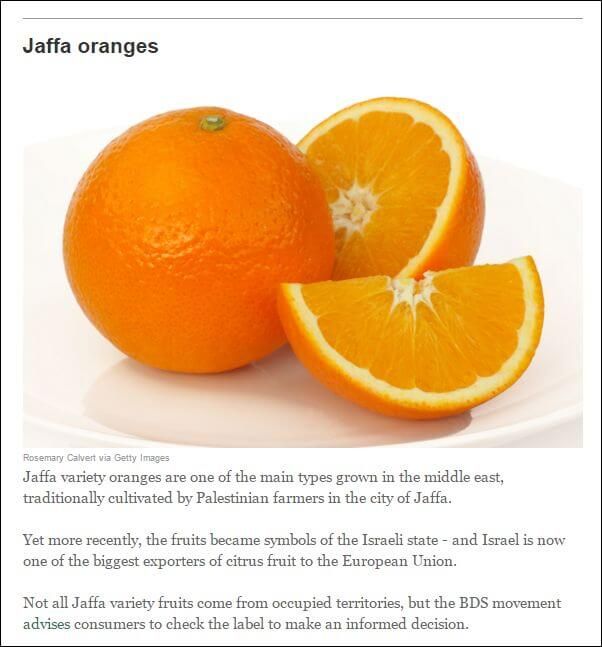There has been a widespread backlash against the UK’s proposed legislation against anti-Israel boycotts, and accusations that it is an attack on free speech and democracy.
While the British government is making things more difficult for the BDS movement, for the Huffington Post this was apparently an opportunity to make things easier for anyone wishing to boycott Israel.
In what appears to be a free promo for the boycotters, the Huffington Post’s article includes:
A revealing list of items prescribed for boycott on the Boycotts, Divestment and Sanctions (BDS) movement’s website highlights the goods targeted by the campaign – and which may soon be protected by government.
Under each product the article gives details such as where they typically originate from, where in the UK they are stocked, how they are labeled, and in the case of Medjoul dates, the fact that “The BDS movement renews its advice before Ramadan each year — as the dates are traditionally used to break day-long fasts.”
As for Jaffa oranges, readers are helpfully informed that “the BDS movement advises consumers to check the label to make an informed decision.”
Although the article says that “Boycotts target goods and services produced by Israeli firms on contested territory in the West Bank,” its list also includes Ben & Jerry’s ice cream, which is targeted by BDS because of its “long-standing contractual relationship with an Israeli franchise that manufactures ice cream in Israel proper and sells it in Israel settlements in the occupied West Bank and East Jerusalem.”
HonestReporting has previously called out the Irish Times for a similarly underhanded attempt at providing a guide on how to boycott Israeli products. Articles like these serve to promote the BDS agenda and gives what BDS thrives upon – media coverage and publicity.
Join the Fighting BDS Facebook page and follow @FightingBDS on Twitter and stand up against the delegitimization of Israel.
Meanwhile, in an example of imbalanced reporting, the Huffington Post article gives a platform to promote the apartheid libel as Ali Milani, President of the Union of Brunel Students claims (possibly even with a straight face):
Students have always felt that university campuses should be the heart of moral and ethical practices and that companies we work with should be free from occupation and apartheid policies. This [BDS] is the best form of non-violent protest against these.
Another reference to apartheid appears in a quote from a spokesman for UK opposition Labour Party leader Jeremy Corbyn who says:
This Government’s ban would have outlawed council action against apartheid South Africa.
The writer tried and failed to get quotes from Ben & Jerry’s, Eden water, and Ahava cosmetics, companies that cannot be considered to have any expertise concerning either Israeli or UK governmental policies. Would it have been so difficult to include comments from any number of sources opposed to the BDS campaign?
Where the article does reference UK government minister Matthew Hancock calling boycotts “divisive” and “counter-productive” – it fails to include his more serious warning that boycotts risk fueling anti-Semitism. It is that risk – which is not just a risk but a proven fact – combined with the BDS movement’s extremism, that are the precise reasons why different strategies, including state legislation, are being adopted to stop BDS.
You can register your complaint to Huffington Post by clicking on the “Suggest a correction” button located immediately above the comments section.
For resources on BDS, click here.


